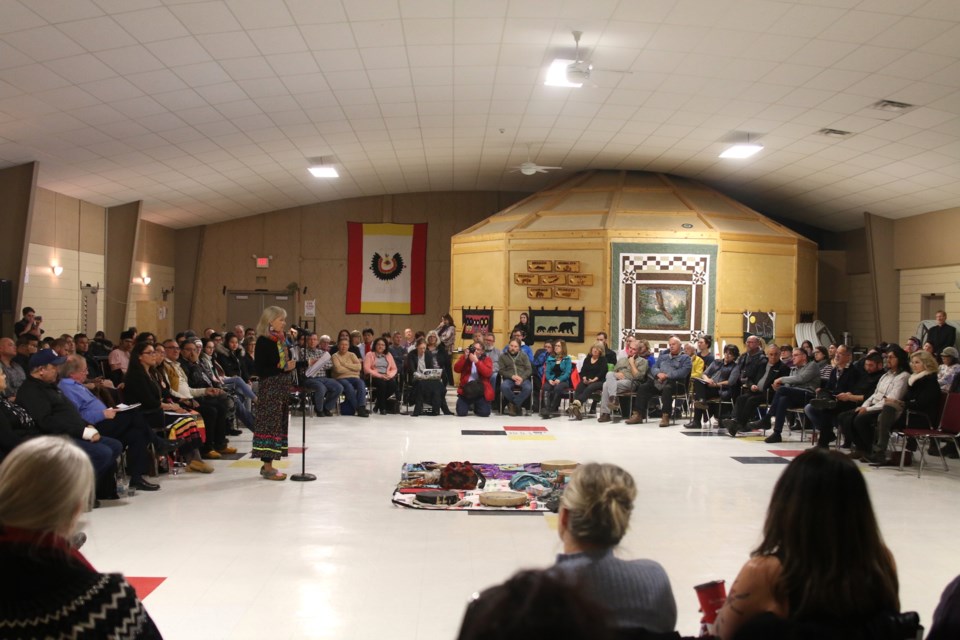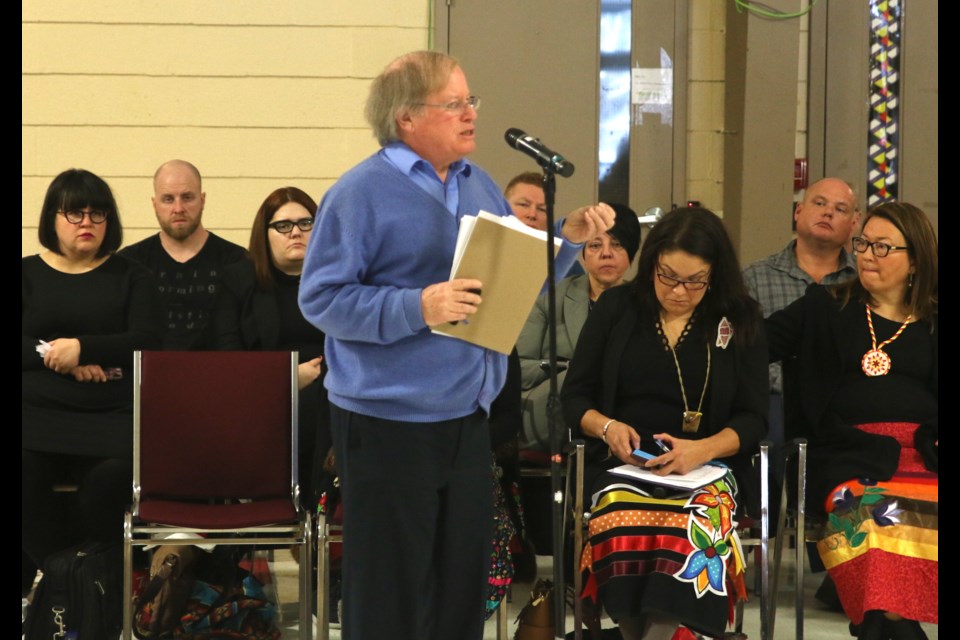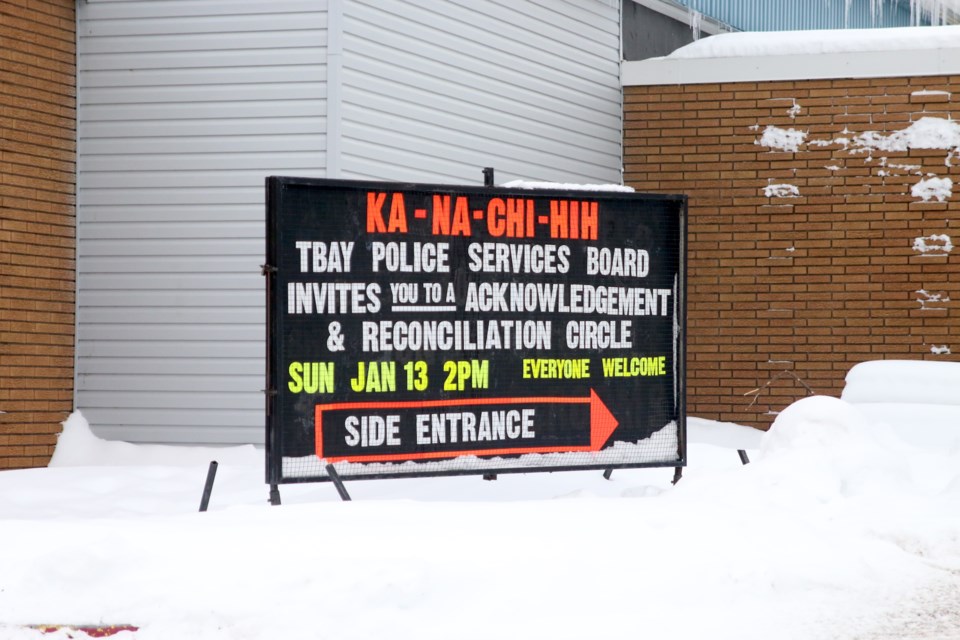THUNDER BAY - To hear the acknowledgement of the existence of systemic racism in the Thunder Bay Police Service and Board, and to receive an apology, left elder Rita Fenton moved beyond words.
“It just touched my heart because it has been a long time coming,” she said. “The systemic racism has been going on for a long time and the acknowledgement, I just feel it in my heart for the people, all of us, who have gone through racism in the city and elsewhere.”
The Thunder Bay Police Services Board publicly acknowledged that systemic racism exists in the local police service and apologized to the Indigenous community during a Reconciliation Circle on Sunday.
The acknowledgement and apology comes in the wake of Senator Murray Sinclair’s report issued by the Ontario Civilian Police Commission that found the Police Board failed the Indigenous community, as well as Independent Police Review Director, Gerry McNeilly’s, report that found systemic racism exists in the police service at an institutional level.
The Reconciliation Circle was held at Ka-Na-Chi-Hih and the hall was filled with First Nations people, members of the Thunder Bay Police Service, including chief Sylvie Hauth, the public, and representatives from the city of Thunder Bay, though Mayor Bill Mauro, who also has a seat on the Police Services Board, was not in attendance.
Celina Reitberger, who was elected chair of the Police Services Board in December, said the public acknowledgement and apology is the first significant step moving forward for the board.
“I am excited that we got to this point so quickly,” she said. “It’s been a lot of hard work on the part of a lot of people. I think it’s a good first step. The journey is beginning.”
“Everything has a new beginning,” added elder, Bob Baxter. “I think this new board is a new beginning for them. Hopefully they find the right path for what they want to accomplish. I think this is a great beginning for them to come to the people and come to the community to see what the thoughts of the community are.”
Following the acknowledgement and apology, the floor was opened to the public to share recommendations, ideas, and solutions, which Reitberger said is a voice that has been silenced for too long.
“That’s what’s been missing,” she said. “We have a system that has become a closed system. So one of the first things we are going to do is open the meetings. This week they will be in council chambers. We want the public to come and we want the public to be giving us feedback, all the time, not just today.”
The Police Services Board will also be undergoing Indigenous cultural training in February and governance training in March. All decisions of the board are currently the responsibility of Thomas Lockwood, who has been appointed as an administrator. All board members must complete the training before being granted voting rights.
Lockwood echoed Reitberger’s comments of this being the first step in what will be a long and ongoing process.
“Now we can move forward and see if we can find a way, working together, to rid this community of systemic of racism,” he said. “I am not so naïve to think we are going to do this in a week or a month or a year, but it is a start.”
“We are going to make mistakes,” Lockwood continued. “As a board, we have made a lot of mistakes in the past and we are probably going to make mistakes in the future. But we are going to try.”
A second circle will be held in the near future, Reitberger said, providing people with an opportunity to share their experiences with the Police Services Board and the Police Service.
For Baxter and Fenton, having that voice, that space to share experiences, solutions, and ideas moving forward is what is going to help reestablish trust between the Indigenous community and the police service.
“The circle is where I think it’s going to be happening,” Fenton said. “That connects us to our culture and it gives us that space to speak from our heart, to speak our truth without and judgment. I think it’s going to develop a trust with the police in the city because Indigenous people do not trust the police.”
“The thoughts of people, their aspirations for how they want this community to move on, it has to come from them,” Baxter added. “I really commend the board for putting this on. This is the first step in the right direction for sure.”







